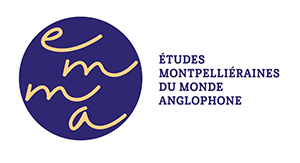Evidentiality And Modality : at The Crossroads Of Grammar And Lexicon

Descriptif
Conference organized at Université Paul Valéry Montpellier 3, EMMA
June 2021
The number of publications on evidentiality has seen an exponential rise since Aikhenvald’s monograph in 2004, and the term of evidentiality has been slowly making its way into grammar textbooks. Its relationship with the notion of epistemic modality is complex and still under discussion (Cornillie 2007, Boye 2010, Tournadre 2016, Guentchéva, ed., 2018). Some consider that the two notions are clearly separated: Aikhenvald (2004), de Haan (1999) and Nuyts (2001). Others posit that epistemic modality is a sub-category of evidentiality: Papafragou (2000), Ifantidou (2001), even though earlier work described epistemic modality as a supercategory encompassing evidentiality: Anderson (1986), Palmer (1986) and Willett (1988) inter alia. Several authors have also revealed how evidentiality interacts with other central grammatical domains, such as tense, aspect, person and polarity, but a thorough description of these ramifications needs more cross-linguistic investigation.
According to Aikhenvald, evidentiality is first and foremost a grammatical category that can be found in some of the world’s languages, whereas other researchers consider evidentiality a universal semantic or pragmatic concept (Boye & Harder 2009, Cornillie, Arrese & Wiemer 2015 inter alia). There is no denying that some languages have a distinctly more grammaticalized evidential system than others, but the research on grammaticalization has also established that drawing a line between what is grammatical and what is lexical in a language depends on several criteria that are open to discussion. Grammaticalisation theory has shed light on the non-discreteness and non-binarity of the grammar/lexicon distinction, and on the fact that languages around the world tend to develop grammatical forms from lexical sources which gradually travel comparable paths (Heine & Kuteva 2002 inter alia). More crosslinguistic research is necessary in order to place the evidential and modal markers of the world’s languages on the lexicon-grammar continuum, and therefore reveal the recurrent patterns that can be observed in languages with emerging evidential systems.
The objectives of this international conferences are to:
-develop a fruitful dialogue between the typological research on evidentiality as grammatical categories and the functional approaches which focus on the semantic and pragmatic properties of these domains
-bring together a large sample of languages, either featuring a fully grammatical evidential system or not
-connect the field of evidentiality with other fields such as grammaticalisation theory
-explore the lexicon-grammar continuum through typological, acquisitional and diachronic studies on evidential markers
Keynote speakers:
Alexandra Aikhenvald (Central Queensland University)
Bernd Heine (Köln University)
Jan Nuyts (University of Antwerp)
Nicolas Tournadre (Université Aix-Marseille, Lacito, IUF)
Organization Committee:
Eric Mélac (Université Paul Valéry - Montpellier 3, EMMA)
Pascale Leclercq (Université Paul Valéry – Montpellier 3, EMMA)
Jacques Brès (Université Paul Valéry – Montpellier 3, Praxiling)
Eric Corre (Université Sorbonne Nouvelle – Paris 3, Prismes)
Nicolas Tournadre (Université d'Aix-Marseille, Lacito et IUF)
Vidéos
Nicolas Tournadre (AMU, Institut Universitaire de France, LACITO), "The Status of Egophoric Markers…
After having discussed some definitions of evidentiality and epistemic modality, I will concentrate upon the main characteristics of the Tibetic Evidential-Epistemic systems, which are among the
Pr. Bernd Heine (Köln University), "The grammar of interactives: The challenge of discourse"
Most work on grammatical analysis has focused on the structure of clauses and sentences organized in a propositional format. Work on discourse processing and the organization of texts suggests,
Alexandra Aikhenvald (Central Queensland University), The Web of knowledge: Evidentiality at the cr…
Knowledge can be expressed in language using a plethora of grammatical means. Four major groups of meanings related to knowledge are Evidentiality: grammatical expression of information source;
Jan Nuyts (University of Antwerp), On the relations between evidentiality and modality
This talk focuses on whether or not the domains of evidentiality and modality relate, and if so, how they relate. The literature does not give a simple answer to this question, mainly because





